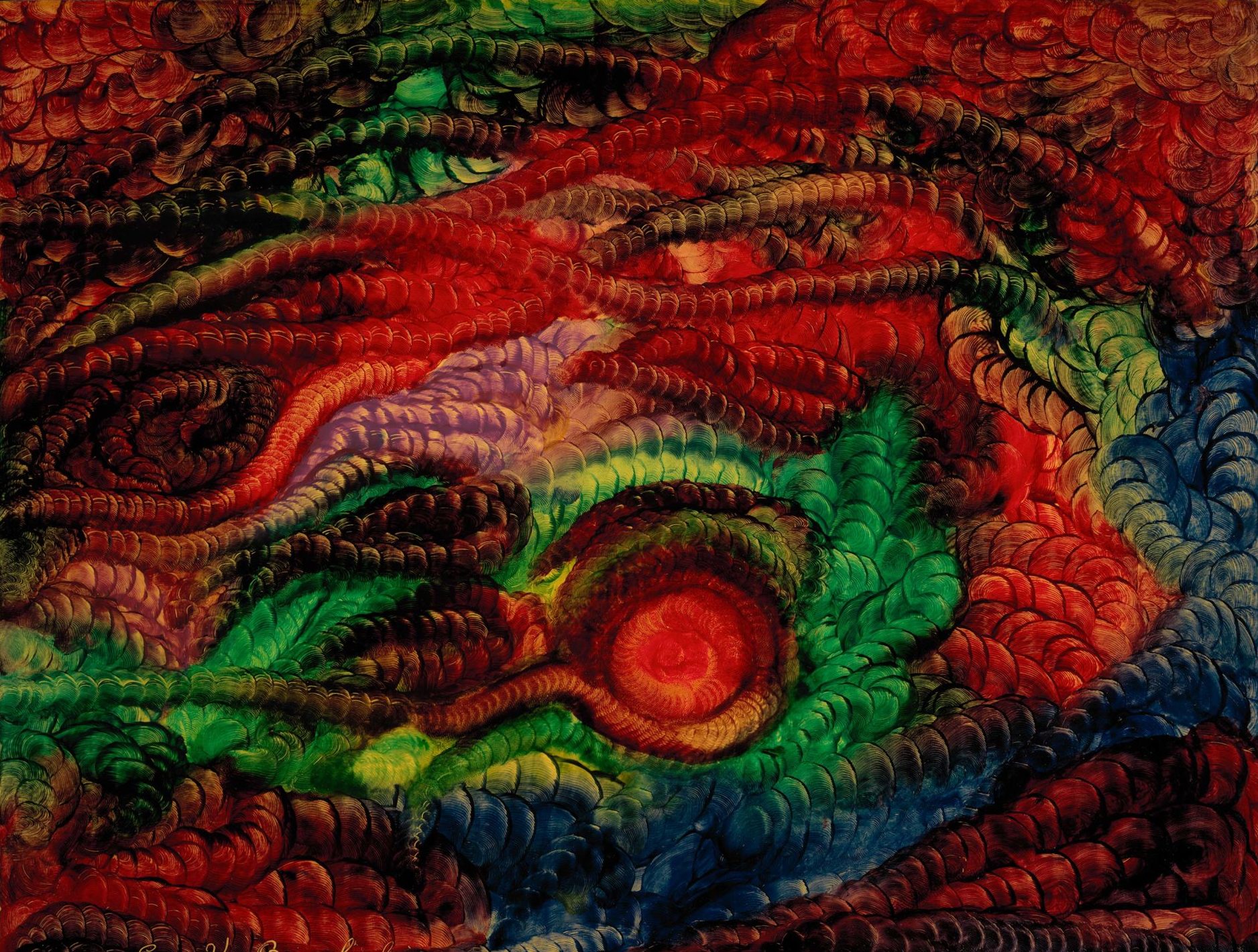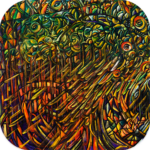About Rin, Tongue and Dorner

Q: Rin, Tongue and Dorner imagines a future in which humans are driven by the encroaching glaciers of a new ice age to live in a weather dome, “Clemency,” where citizens are encouraged to regulate “temp”—both temperament and temperature—for the sake of the colony’s survival. By the standards of our contemporary Western society, the strictures they follow are repressive.
RS: The people of Clemency have a difficult time adhering to them.
We would all prefer to believe that an enlightened outlook on desire will make it compatible with our social, familial and global objectives. That’s a pleasing idea. Unfortunately desire is fueled by thoughts of violence and transgression; by fantasies of domination and surrender; by a host of socially inappropriate thoughts.
It’s easy to look down from 30,000 feet and see the biological source of the problem. We’re designed, as a social species, to get along, to collaborate—to be colonial and tribal. But as individuals, we are designed to reproduce, and the machinery of desire is often antisocial by nature.
You wonder what it was like for our prehistoric ancestors. They must have struggled with that. They lived a tribal existence, and they probably had less sophisticated controls over their impulses than we do. Survival-wise, they were much more challenged than we are. Like the people who founded Clemency, they had to migrate due to the weather.
Q: Dorner seems to personify this conflict. His private fantasies become increasingly difficult to tamp down, especially once he meets Rin.
RS: Yes. I’ve pushed things to a ridiculous extreme to depict it, but I think we all feel the clash. Dorner has a thing about fire. Maybe this is the magic that will bring Rin to him.
“By making the interior voices strong, by hyperventilating them, we get to see all of the interior conflicts.”

Q: Rin and Dorner are modern. Is that what you’re saying?
RS: They accept the modern view, which is: fuck it, we’re going for the ride. I enjoy that, I respect them for that. But they pay a price.
Q: The source of Dorner’s fantasies is “Tongue,” a weaving chorus of beckoning, provocative voices inside Dorner’s head. With Rin’s help, these voices are revealed to be a singular volatile goddess of desire—Dorner’s desire.
RS: Yes. Initially, he thinks that this is something that’s happening to him. It’s hard for him to accept that Tongue is a part of himself.
Q: But he’s not insane. He might be described as a reluctant mystic.
RS: He might be. St. Anthony heard voices. I suppose he was a reluctant listener, like Dorner. By making the interior voices strong, by hyperventilating them, we get to see all of the interior conflicts.
“People don’t want to be repressed. They want to throw off their strictures. They can’t feel desire unless they ignore and violate the rules.”
Q: Rin, Tongue and Dorner is a meditation on desire.
RS: And its opposite, the forces that oppose desire. That was a lot of what motivated me: trying to understand the impulses and their opposites. Dorner doesn’t really understand what the opposites are.
Q: Rin and her world make the opposites more vivid for him, and the conflict that much worse. Rin seems to stimulate the worst aspects of Tongue.
RS: Tongue really doesn’t like Rin, doesn’t like what she stands for, doesn’t like her world and her take on life.
Q: But Rin helps Dorner to visualize Tongue and get in touch with her.
RS: Yes, Rin is the instigator. We see her interior turmoil early in the story. She’s drawn to Tongue. Of all the characters in the story, Rin changes the most. She encourages Dorner to know himself, but she’s on the same journey.
Q: We figure out pretty early on that she has ulterior motives.
RS: She isn’t just trying to fix Dorner. She threatens his inner equilibrium. And her own equilibrium is threatened by Tongue.
Q: Tongue dares Dorner to see who he really is—and for Rin to see that too. What he finds is disturbing to both of them, but ultimately (at least in my reading) liberating. You seem to suggest that self-knowledge, if it doesn’t kill you, might just set you free.
RS: They’re both committed to their course. They both seem to be energized and enthusiastic about it, even though there’s the recognition that there could be a dark end. That’s how it works, doesn’t it? People don’t want to be repressed. They want to throw off their strictures. They can’t feel desire unless they ignore and violate the rules. Things forbidden are important. I feel sorry for all of us, but especially for Rin and Dorner, that they have to endure what they do.
Q: And all for the sake of their love of fire.
RS: Fire has always been allied with uncontrolled desire, for a good reason. Fire is the sudden and destructive release of energy. It’s gorgeous. Beautiful.
Q: In Clemency, Vapos is on the furnace level. It provides heat, but the fire is protected and controlled.
RS: Yes, fire is hidden from view. People can’t go down there. But it’s raging beneath the dome.
Q: On the asteroid, fire is out in the open. From the vivid descriptions, we get the sense that you’ve spent some time observing fire.
RS: I love fire. I wanted to be a fireman when I was a kid. After graduating from college, the first job I applied for was with the Berkeley Fire Department. Those big red BFD trucks would go screaming down the streets, and I’d be screaming, “Take me with you.” Doing research for this book gave me an excuse to go on some controlled burns. What an experience. Low-flying choppers dropping fire bombs on the forests. Walls of fire, tornadoes of fire. I was with the chief on one burn, and he was as hopped-up as I was. He turns to me and says, “In our hearts, we’re all pyromaniacs.” Controlled burns are a pyromaniac’s dream, because you get to start the fires yourself.
Q: This is your first foray into outer space.
RS: Well— How different is Vapos from the molten realm of Animus, or the mineral sky of Hope? The domain of Dawn and the Dream man is extraterrestrial, and so is the blue sea of the Polyp. For my purposes, all these places are unearthly.
Q: As in your other projects, the balance between inner and outer worlds is precarious.
RS: As in life, I think. For most of us, the way in which the balance is established is critical. And it’s often the source of trouble. To live on the outside means to be continually integrating new experiences—new places, new people, new ideas; and you assume a new identity when it pleases you. That’s healthful and rejuvenating. But it’s the life of a consumer, and it carries with it all the dangers of consumption: numbness, shallowness, indolence and triviality. Living on the inside is essential to the act of creation—using what was gleaned from outside to build something of your own. That’s a human ultimate. But it has its own set of dangers: solitude, arrogance, mental and emotional starvation, and paranoia.
Q: Once again, you take us into an ideational realm at odds with reality. And once again, your narrative voice celebrates the unreal side of the battle.
RS: Once again. Over the years I’ve learned that some readers can go there and some can’t. I have a theory that people who are disturbed by the thought of embracing a figmental reality are reacting to something traumatic in their past—a loved one who was an alcoholic or an addict or had mental problems. I don’t want to inflict my writing on people who find it troubling. Maybe we should put a warning on the cover.
Q: In Rin, Tongue and Dorner, the real is the world of Clemency, of Planning and family. The unreal is Tongue.
RS: My mission, it seems, is to explore the tug-of-war between powers that secure us to reality, and those that want to hurl us away, for good or ill. In that conflict, companionate love—the glue of society—is forever at war with passion. The two can’t be peaceably reconciled. When there’s coexistence, it’s a precarious one. And real resolution only comes with the annihilation of one state or the other.















